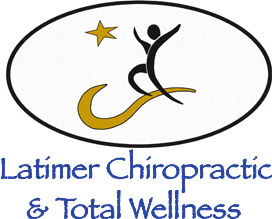From Psychology Today February 2020, By Devon Frye
Comments on the article by Dr. Pamela Latimer:
Omega-3 fatty acids, vitamin C, magnesium, and curcumin may have the power to neutralize negativity and fight against major depression.
A new year brings hope and visions of a brighter future ahead. But the dawn of this new decade is seeing a record number of people—particularly the young—struggling with depression.
Thirteen percent of teens in the U.S. experienced at least one depressive episode in 2017—up 52 percent from the decade prior, according to research in the Journal of Abnormal Psychology. Rates of suicide and self-harm also spiked among undergraduates between 2007 and 2018, another study found.
Calming the Brain
Although the field of depression has long been dominated by theories of “chemical imbalance,” evidence now supports the neuroinflammatory hypothesis, which posits that heightened levels of inflammation may kick off or exacerbate depression. “That’s where omega-3s fit into the picture,” says Laura LaChance, a nutritional psychiatrist at the University of Toronto.
Essential fatty acids, omega-3s have powerful anti-inflammatory effects but must be supplied via diet. “We’re not consuming enough omega-3s,” says LaChance. The resulting imbalance between omega-3s and proinflammatory omega-6s is likely “contributing to the systemic inflammation and increased depressive symptoms we’re seeing.”
Of the omega-3s, eicosapentaenoic acid (EPA) may be the strongest antidepressant. Two meta-analyses in Translational Psychiatry found that supplements of primarily EPA were significantly more effective than those in which docosahexaenoic acid (DHA) was the main ingredient.
Curcumin, a compound found in turmeric, is another anti-inflammatory player, says Adrian Lopresti, a psychologist at Australia’s Murdoch University. But that may not be its only method of protection. Depression is linked to increased cortisol, as well as disturbances in neurotransmitter operations; studies have shown that curcumin positively affects both, he notes. “My guess is the antidepressant mechanisms of curcumin are numerous.” In two randomized trials in patients with depression—one of curcumin alone and one in combination with saffron—he reported significant improvements over placebo.
Adding more turmeric—a major source of curcumin—to your food can bring numerous health benefits. Adrian Lopresti of Murdoch University recommends a twice-daily dose of 250-500 mg of curcumin, “For depression, supplementation is recommended.”
Dr. Latimer--We have carried supplements with tumeric with the best absorbtion blend now for over 20 years. Inflavinoids from Metagenics and Tumeric Forte from Standard Process. Tumeric also should also be taken with anything fatty like with a meal to aid absorbtion.
Some inflammation may be due to oxidative stress. “The brain is a massive consumer of energy,” LaChance notes. It turns glucose—its fuel of choice—into energy using oxygen. The oxidative metabolism generates free radicals, unstable molecules that undermine brain cells. “Vitamin C acts as an antioxidant, mopping up some free radicals,” she says. Lower levels of C have been linked to depression in observational studies.
Dr. Latimer--In most supplements Vitamin C is “fake C” as ascorbic acid. It is not utilized well in the body. I prefer to recommend “whole food Vitamin C”--as a complex-- in supplements from a whole food company such as Standard Process.
Magnesium, a participant in many cellular reactions, can reduce levels of inflammatory proteins. That may play a role in its antidepressant effects, observes Emily Tarleton, a dietitian at Northern Vermont University. “But it’s also affiliated with the neurotransmitters involved in mood regulation,” she says—suggesting that magnesium, too, is fighting depression on multiple fronts.
Magnesium teams up with calcium to stabilize the brain’s glutamate pathway. Low magnesium—and thus, higher calcium—can increase glutamate to levels associated with depression. Tarleton recently found that lower levels of magnesium predict depressive symptoms. “The increase in calcium and glutamate is, we think, the reason that low magnesium [is linked to] depression,” she reports.
Dr. Latimer--Magnesium is a simple element that must be taken in the correct form to be utilized. Magnesium glycinate, aspartate or lactate are well absorbed. Mag oxide and citrate (which are commonly offered as “the cheapest” purchases) are poorly absorbed. Magnesium can only work when it gets into the bloodstream and into the target cells.
The Case for Supplementation---LaChance is among the growing number of experts who regularly prescribe dietary interventions to patients, aiming to boost their intake of key nutrients. The benefits to mental health are huge, she reports—and physical health is often improved, too. “I’m hopeful about the power of nutritional intervention to improve overall wellness,” she says. “There’s not much we do in psychiatry that has that type of potential.”
Now that science is inexorably demonstrating that nutrient intake is a foundation of mental as well as physical health, what is the best way to ensure adequate intake? Does the modern diet suffice, or is supplementation the way forward?
For starters, depression itself can impede a balanced diet. “It affects motivation to prepare healthy foods,” says LaChance. Supplements may be easier for patients to manage and track.
For some nutrients, it’s not just the depressed who face barriers to meeting their daily allowance. Magnesium deficiency affects nearly 70 percent of the U.S. population. “We would love for people to get adequate amounts of magnesium through diet,”says N. Vermont Univ. Emily Tarleton,“we know that a majority do not”
Magnesium supplementation has few side effects and, in Tarleton’s recent trial, began improving depressive symptoms in two weeks. Omega-3s, found mainly in fish, are another widespread deficiency; supplementation, too, has few side effects. “The most common supplement I use in my practice by far is omega-3s,” LaChance says.
Food For Your Mood----According to LaChance’s research, these foods are among the best sources of 12 evidence-backed antidepressant nutrients—including omega-3s, vitamin C, and magnesium:
Animal Foods
- Oysters, clams, and mussels
- Organ meats, liver and poultry giblets
- Crab, lobster, and fish roe
- Emu
- Goat
Plant Foods
- Watercress, spinach, and swiss chard
- Mustard, turnip, or beet greens
- Peppers (bell, serrano, or jalapeño)
- Papayas, lemons, and strawberries
